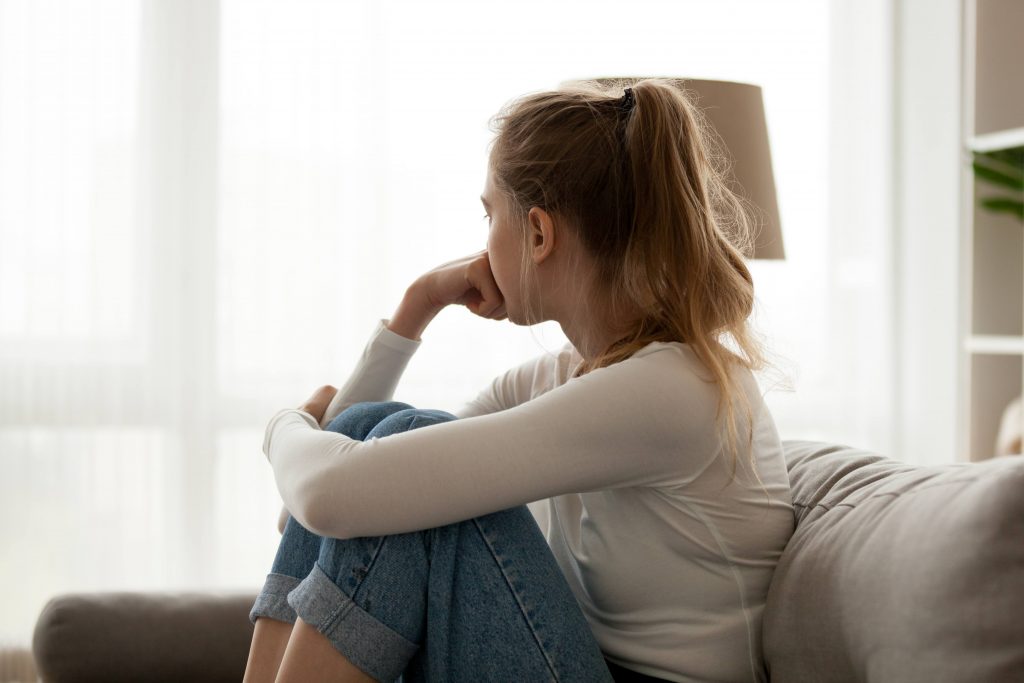
DEAR MAYO CLINIC: My 15-year-old daughter has always been anxious, but her anxiety seems to be worsening by the day. She is worried about everything from COVID-19, even though she is vaccinated, to getting accepted into a good college. There are days when she doesn't want to get out of bed and go to school. Other days, she voices worry about performing well during her soccer game and refuses to go to practice. I'm wondering about my next steps. Should she see a therapist?
ANSWER: Everyone experiences anxiety from time to time. It's a normal part of life. However, the COVID-19 pandemic has certainly amplified fear and uncertainty for many people.
Although everyone experiences fear and anxiousness from time to time, when excessive and persistent worry begins to regularly disrupt a person's daily activities, that could be a sign of an anxiety disorder.
I recommend that you make an appointment for your daughter to see her health care provider. A visit with a family physician or pediatrician often is a good place to start for an initial evaluation, and to receive guidance and identify resources that can help a teen manage an anxiety disorder.
People who have an anxiety disorder may have feelings of nervousness, worry, fear or panic that are difficult to control, out of proportion to actual danger, and last a long time. They may avoid certain places, people or situations in an attempt to prevent those feelings.
In teens, an anxiety disorder may interfere with their ability to go to school or do homework. It can make it hard for them to maintain friendships and participate in extracurricular activities. Teen anxiety may lead to problems within family relationships, too.
When anxiety limits a teen's activities, or if excessive worry, fear or anxiousness persists for several months, it's time to seek professional guidance. Your daughter's health care provider can assess her situation to get a better idea of whether she may have an anxiety disorder. He or she also can perform an evaluation to see if there may be an underlying medical cause of your daughter's anxiety.
Certain medications and some medical conditions can trigger anxiety. If that's the case, changing medication or treating the underlying condition could relieve the anxiety.
If your daughter's health care provider suspects an anxiety disorder, he or she can help you find a mental health professional who specializes in treating children and teens. Treatment for anxiety in teens typically begins with exposure therapy.
Exposure therapy is different than counseling. It's a form of therapy that involves gradually encountering the circumstances that trigger anxiety, so a teen can build confidence in handling those situations and their anxious feelings. This approach also includes teaching parents how to provide useful support to a child in managing anxiety. Exposure therapy typically consists of about 10 weekly sessions.
Although research has shown that exposure therapy is one of the most effective ways to treat anxiety in teens, programs that offer exposure therapy to adolescents are not available in all areas. Some large academic medical centers, including Mayo Clinic, offer intensive exposure therapy programs that last a shorter amount of time for families who must travel to receive this care.
In some cases, medication to help control anxiety also may be recommended in addition to exposure therapy. When exposure therapy is not available, it is possible for anti-anxiety medication to be used as a first step in treatment. But a teen should always be evaluated and diagnosed before starting to take medication for anxiety, and a health care provider must monitor medication regularly.
It can be challenging to know when to seek help for your child. The Mayo Clinic Anxiety Coach is another resource that can offer information about the differences between anxiety disorders and stress, as well as available treatments and guidance to find the right treatment options. Effective treatment is available for anxiety, and it often can be successfully controlled. — Dr. Stephen Whiteside, Psychology, Mayo Clinic, Rochester, Minnesota
****************************
Related Articles
- Mayo Clinic Q and A: Helping a child with test anxiety published 4/26/21
- Mayo Clinic Q and A: Reducing anxiety and stress during COVID-19 pandemic published 4/25/20
- Mayo Clinic Minute: How weighted blankets may lift anxiety published 5/16/19







